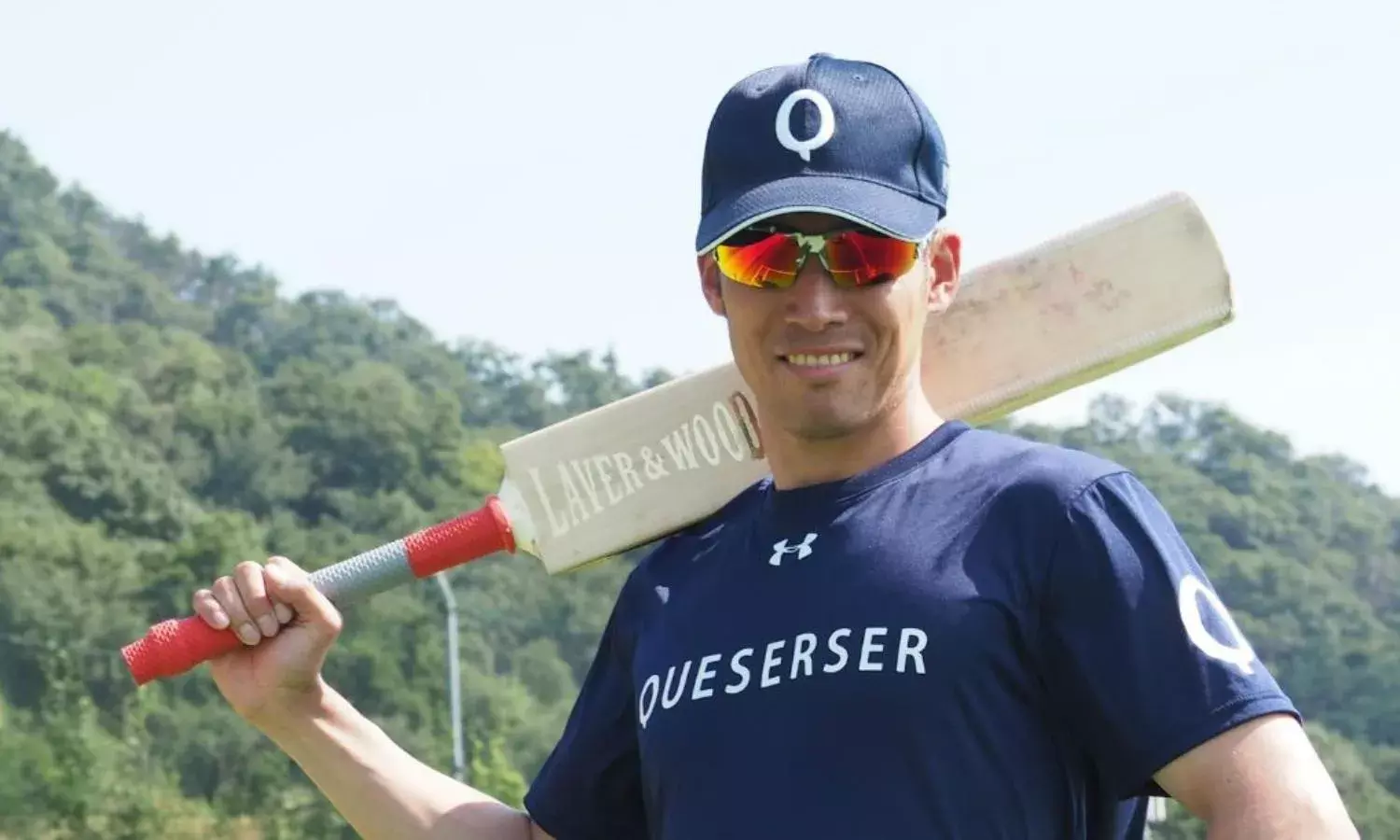Shogo Kimura's Switch From Baseball to Cricket: 'It Has Been Fun'
Interview

At 38, most professional sportspersons are busy thinking about their post-retirement life, but not Shogo Kimura – a renowned Baseballer from Japan, who has now switched to cricket and aiming to be a T20 specialist.
For three decades Kimura has been a professional baseball player. The former infielder featured in Japanese Professional Baseball League from 2003 to 2017, representing teams like Yokohama BayStars, Hiroshima Carp and Seibu Lions. However, in 2017, when the Lions management decided not to renew the contract of Kimura, he was left without a team.
He could have easily shifted to coaching at that time. But Kimura felt there was enough fire left in him to continue as a sportsman. Hence, he decided to try his hand in cricket – a sport, where the basic dynamics are quite similar to baseball. And following an initial struggle, presently Kimura has made a name for himself in the Japan cricket fraternity.
Recently the author got in touch with Kimura for an exclusive interview. And taking time out from his busy training session in Australia, he decided to talk about his unusual career switch.
Excerpts:
Q: At 38, most professional sportspersons are at the twilight of their careers, whereas, by switching from Baseball to Cricket, you are venturing into a completely uncharted territory altogether. So, how did this idea of becoming a professional cricketer first strike you?
Shogo Kimura (SK): I found the idea [of playing cricket] to be really interesting. I did not know much about cricket but I believed the skills were transferable and I was excited by the challenge.
From a hardcore professional in one sport to a rookie in another - how is the journey so far, emotionally?
It has been interesting and fun!
At this stage of your career, from the fitness point of view, what are the primary challenges, you believe, you need to overcome to be a professional cricketer?
I need more experience and to spend more time batting. The skills are hard to acquire, and in T20 it is more difficult to spend a long time batting in the game, so obtaining experience is a big challenge.
Despite a few basic resemblances, you must agree that a Cricketer and a Baseball player require different skillsets. Especially, in Cricket, a batsman needs defensive technique to block the good balls. Also, the footwork plays a key role while handling versatile bowling attacks on different sort of wickets. So, after a successful 30-year long career in Baseball, how are you planning to change your basic instincts to address these technical issues?
I must train my body so that the cricket movements become natural. I also need to learn new ways to use the bat and how to hit the ball to different areas. All of these are linked with movements [of feet], so I must train hard for those movements to become instinctive.
Of late, you have been training as well as playing club cricket in Australia. So, can you please elaborate more on this aspect?
It is great to see a different cricket environment, the Australians train very hard. I have been able to play a lot of matches, which will always help me, and I have learnt a lot about different match scenarios and how to succeed.
Last year, you came to India to watch a few IPL matches. How was your experience?
When watching the IPL I knew I wanted to be out there playing rather than in the stands watching.
Who is your role model in Cricket?
Virat Kohli.
Have you set any particular goal for yourself in Cricket?
Playing in the IPL would be my dream.
In Japan, you are a sporting legend. So, do you think if you represent the country in Cricket on a frequent basis, the game will attract more eyeballs and which can help the game to grow further in your part of the world?
I hope so, but it is not enough. To be truly successful I must perform in major competitions around the world, as that is where matches are televised and I can be a bigger role model.
Finally, what according to you is the future of cricket in your country?
I believe that cricket has great potential and the game can continue to grow in popularity in Japan. However, if we have a professional league and can start attracting high quality players that will be a game changer.
(The writer would like to thank the Japan Cricket Association for their co-operation in conducting the interview.)



